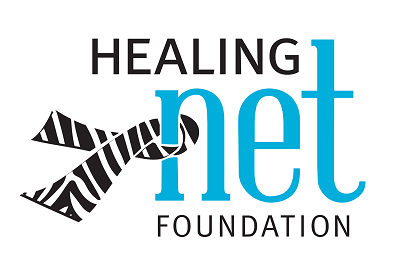As a caregiver, you remember all too well that day the diagnosis came. You remember being with your loved one as they spoke about what the doctor said. You were there the day of surgery and throughout recovery. You remember the ride home from the hospital and the moment you helped them in the house. You remember that moment you learned what a caregiver even was. Even if you were one of the blessed ones to be educated in the art of caregiving and felt completely prepared for the upcoming task, most likely no one ever gave you insight into the art of giving yourself grace.
Maybe you are the type of caregiver who ffinds great joy in caring for your loved one, a person who has discovered your purpose and finds a great sense of accomplishment in the work, perhaps a sense of confidence. Maybe being a caregiver has opened new doors for you and helped you meet new people. Or maybe you are like me, the type of caregiver that is sad for your loved one, but feels completely overwhelmed and inadequate, often frustrated and feeling alone. Maybe you live somewhere where you have access to a lot of resources and help, or maybe (like me) you were sent home from the hospital without even so much as a hotline phone number. No matter what your mindset as a caregiver or what resources (or lack thereof) you have access to, the art of giving yourself grace is for everyone!
grace noun \ ˈgrās \
a : approval, favor stayed in his good graces
b archaic : mercy, pardon
c : a special favor : privilege
d : disposition to or an act or instance of kindness, courtesy, or clemency
e : a temporary exemption : reprieve
I love this definition of grace. As a caregiver who feels overwhelmed, it’s easy (and normal) to feel depressed and alone. This is where grace comes in. I would encourage you to print this definition and tape it somewhere you can see it regularly. Grace is giving yourself the stamp of approval, showing yourself kindness, granting yourself clemency, finding reprieve. Whether you feel comfortable with caregiving and find it rewarding, or if you find it more challenging like me, I hope you know that it’s ok to give yourself grace!
How do you put this into action? Everyone’s situation is different and everyone enjoys different things, so the key is to discover what grace looks like to you. Here are a few ideas:
- Spend time with friends – meet for coffee, go to a movie, get a pedicure, take a walk.
- Discover a new hobby – check out what your community recreational center has to offer. Take a cooking or painting class, tennis or swimming lessons, use the gym or the rock wall.
- Find a good book and carve out time to curl up with it.
- Keep your own health in mind – taking steps to improve your diet and move your body will help you feel your best, and when you feel your best, you can be a better friend, wife, husband, caregiver.
- Attend a support group in your area – being able to hug others who can relate to you is a great source of support.
- Ask for help!!! I can’t stress this point enough. Those closest to you want to help, you just have to ask. Ask your closest friend or family member if they would be your “go-to” – the person you can call any time day or night and just talk when you need to. I guarantee you, they would LOVE to have the opportunity to do that for you!
- Seek professional help. Maybe it’s time to talk to a trained professional – you’ve tried getting through this on your own, but you are depressed, think about hurting yourself or others, cope with drugs and alcohol, fight with those around you and no longer take care of yourself at all, it’s time. You are not alone! The American Cancer Society has some great resources: 1-800-227-2345, or contact your personal healthcare provider.
I hope in some way that I have been able to give you hope and that you can give yourself grace through this process. You’ll find you’ll make a better caregiver!
Tiffany Castignino, Jon's wife



